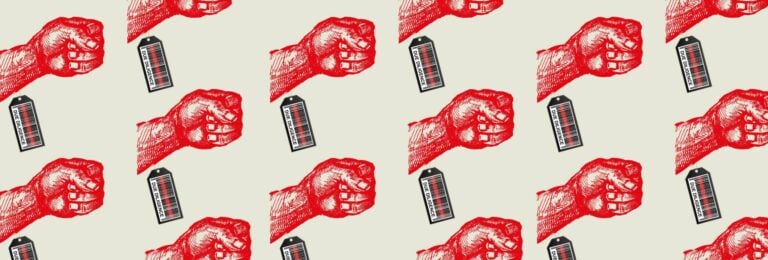Protective gear, but still illegal overtime in mobile phone factories
Every second mobile phone is produced in China. In 2008 SwedWatch and makeITfair released a report about the poor working conditions at electronics factories in China. One year later, two of the factories, which manufacture mobile phone charger for Nokia, Samsung, Motorola and LG, were checked again.
The follow-up shows that important improvements have been implemented. Now the workers are supplied with protective gear and are trained on health and safety issues. But some problems still remain. Working hours are still contrary to local law, and job applicants must undergo medical tests during the hiring process.
In 2007, the majority of the employees in these two factories were young women – without protective gear – breathing health-damaging vapours at workstations that lacked adequate ventilation. The standards in the factories’ sleeping and dining rooms were unacceptable.
Since then, a new owner has taken over the factory and invested US $2.5 million to improve the situation. The improvements are confirmed by staff members; all interviewed by makeITfair this past autumn. However according to the employees there is still a number of problems that remains. Complaints are mainly about the illegal overtime, causing health problems in turn.
Nokia, Samsung, Motorola and LG Electronics source from factories 1 and 2. In December 2009 they were given the opportunity to comment on these findings. (Comments in writing and by phone were received on 7 to 9 Dec 2009 from Nokia, Motorola and LGE.)
Nokia
After makeITfair’s last report was published, Nokia continued to follow up activities at the two factories. They write to makeITfair that they perceive that the owner of the factories is committed to improvements but Nokia declines to comment on the issues that remain to be addressed according to workers interviewed by makeITfair. Nokia has audited the sites and interviewed workers on-site but has not provided makeITfair with information about when the last audit took place. Audit findings were in line with factory management’s descriptions, says Nokia’s Senior CSR Manager.
Motorola
Motorola became aware of problems at Factory 1 in 2007 when they employed an independent audit firm to examine the conditions and interview workers at the factory. Corrective action plans were set up and improvements noted. Motorola writes to makeITfair in 2009 that they regard the actions taken by the new owner as commendable but also see the necessity of further work: "Motorola understands there is still much work to do and continues to support a collaborative approach that involves members of the electronics industry along with key stakeholders". When Motorola becomes aware of problems at a supplier its standard procedure is to conduct an investigation, which includes an in-depth assessment on-site conducted by an independent thirdparty audit firm. Corrective actions are then monitored until it is possible to confirm closure. All Motorola suppliers included in makeITfair’s 2008 report have been
investigated and Motorola writes that they have taken action to address the issues identified. Motorola will conduct followup audits when they consider it appropriate.
LG Electronics
After having read makeITfair’s report in 2008, LGE contacted its suppliers. The company was informed that improvements had been made and that corrective action plans had been set up at factories 1 and 2. However, no site audits on labour conditions were conducted by LGE and no information was collected from workers to verify the information received. In 2009, audits of suppliers’ factories were not included in LGE corporate responsibility activities. LGE informs makeITfair that non-financial risk assessments have been conducted during the last year and overseas subsidiaries (not suppliers) have carried out self-assessments. The company will start conducting site audits of their subsidiaries and first tier suppliers in 2010. They will also encourage suppliers to set up management systems to deal with labour issues.
Source: Evertiq.com, 1-12-2009
Related news
-
 Major brands sourcing from China lack public policies on responsible exitPosted in category:News
Major brands sourcing from China lack public policies on responsible exitPosted in category:News Joshua RosenzweigPublished on:
Joshua RosenzweigPublished on: -
-
Linking labour issues in China to global brands Published on:Posted in category:Publication



